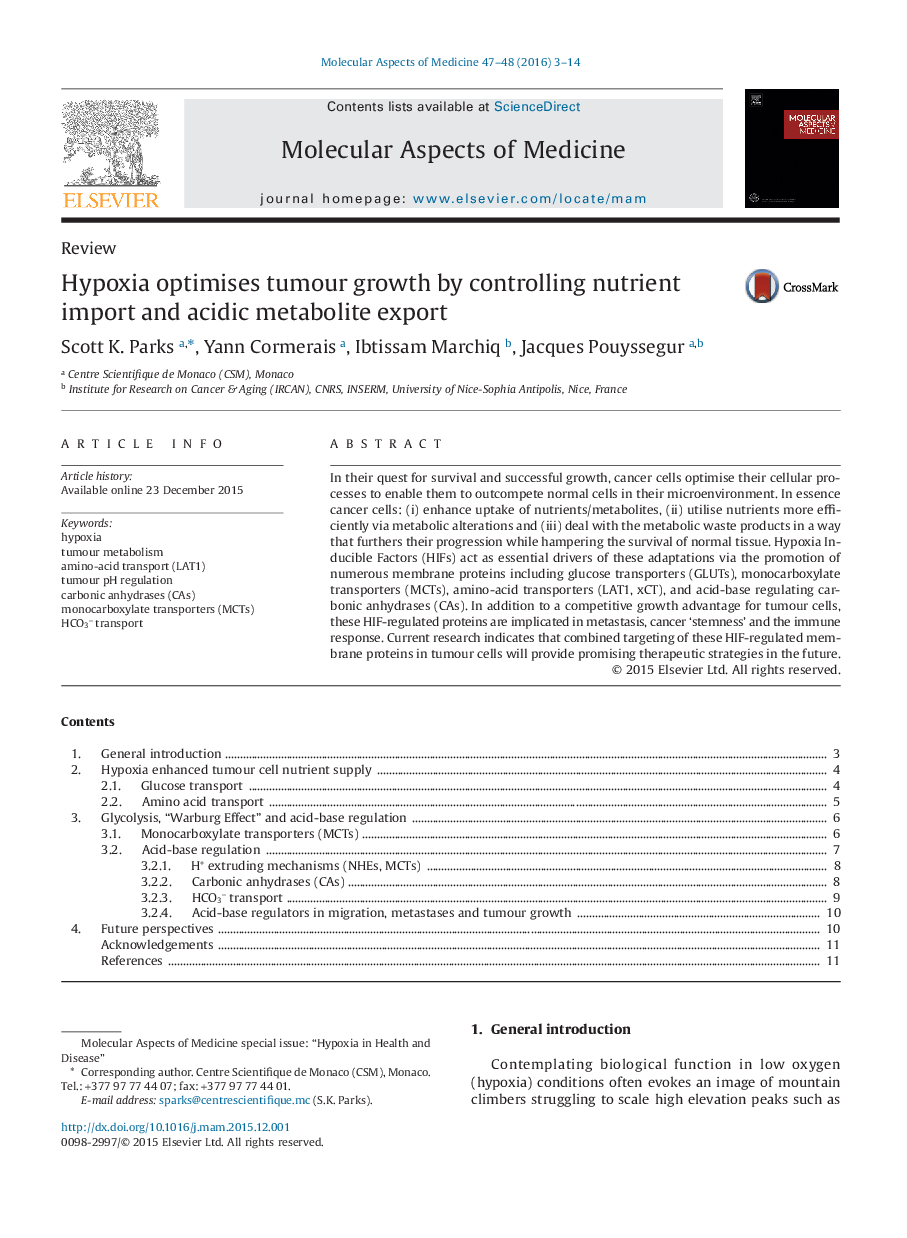| Article ID | Journal | Published Year | Pages | File Type |
|---|---|---|---|---|
| 1995602 | Molecular Aspects of Medicine | 2016 | 12 Pages |
In their quest for survival and successful growth, cancer cells optimise their cellular processes to enable them to outcompete normal cells in their microenvironment. In essence cancer cells: (i) enhance uptake of nutrients/metabolites, (ii) utilise nutrients more efficiently via metabolic alterations and (iii) deal with the metabolic waste products in a way that furthers their progression while hampering the survival of normal tissue. Hypoxia Inducible Factors (HIFs) act as essential drivers of these adaptations via the promotion of numerous membrane proteins including glucose transporters (GLUTs), monocarboxylate transporters (MCTs), amino-acid transporters (LAT1, xCT), and acid-base regulating carbonic anhydrases (CAs). In addition to a competitive growth advantage for tumour cells, these HIF-regulated proteins are implicated in metastasis, cancer ‘stemness’ and the immune response. Current research indicates that combined targeting of these HIF-regulated membrane proteins in tumour cells will provide promising therapeutic strategies in the future.
